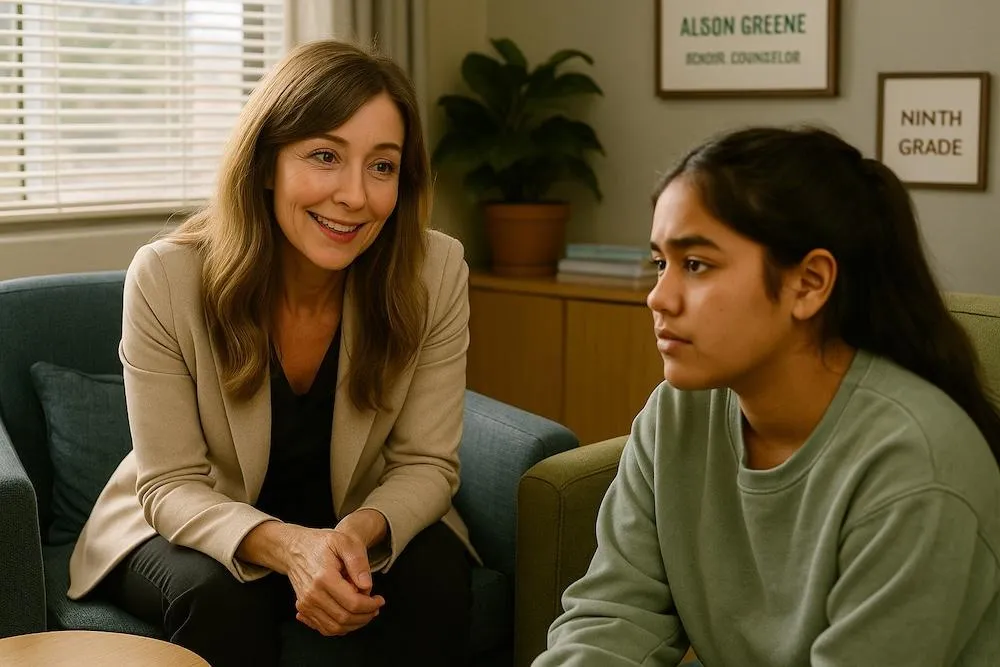
The Magic of Asking Different Questions
As educators, I know that your time is limited but I also know there are days when a loud noise in the hallway scares you. I want you to be the teacher and school counselor you were meant to be, calmly.
I’d like to share a story that speaks to the heart of what we do, and what we need, and what happens when we take a moment to ask a different kind of question.
Let’s call her Marissa.
She was a ninth grader with a file full of suspensions and a reputation for being "difficult." Most days, she arrived late, withdrew in class, or got sent out for backtalk or worse.
Teachers were exhausted. The AP had her on speed dial.
And still, nothing changed.
At home, things were no easier. Her mother worked two jobs. Her older brother drifted in and out of trouble. There was no consistent supervision, little support, and a whole lot of chaos.
It would have been easy, understandable even, to write Marissa off.
But one day, instead of a referral, the assistant principal sat beside her and said:
“I’m wondering… on the days you stay in class, what’s different?”
Marissa blinked. Then shrugged.
“I don’t know. I guess… when my friend’s here, I just don’t get as mad.”
That tiny response opened the door to something powerful. She could control her emotions in spite of how tough things were.
What changed for Marissa wasn’t discipline. It wasn’t a behavior contract or suspension.
It was someone noticing that she already had exceptions, and taking them seriously.
A few days later, a school counselor followed up:
“When you’re around that friend, what difference does that make for you?”
“When else do you find yourself calm, just slightly?”
Marissa’s answers weren’t perfect. But they were real.The theme was that when she was around someone she trusted or others who accepted her, she was better.
Over time, she was asked to join a small lunch group, not as a “targeted intervention,” but as a way to connect with others who made school feel safe.
She was quiet at first, but then she began talking.
She stayed in class more. Her suspensions dropped. Her teachers began to notice her trying. And little by little, so did she.
You don’t have to change a student’s home life to make a lasting impact.
But you can try something simple this week. It won’t take a lot of time and might leave you feeling good.
✨Talk to a student with a tough exterior, who is referred to you for disrespectfulness. Leave out the teacher complaint at first, then say:
“Tell me about yourself. I would like to get to know you. I’ll tell you about me, too!”
Get to know the student and then say:
“Suppose you go back to class and show that side of yourself to your teacher, just for the rest of the day. What do you think she might notice about you?”
Then DO THIS:
Walk the student back to the teacher’s class, ask the teacher to step outside for a moment and thank her for the referral. Look at the student and say, “I know you want to be able to teach and that’s important to me and your students. Joey is going to do some things differently this morning so you can see another side of him. Please watch.”
When we shift from reacting to behaviors to curiously exploring exceptions, students start to see themselves differently.
They begin to believe something new is possible.
And as always, that’s where the magic begins.
